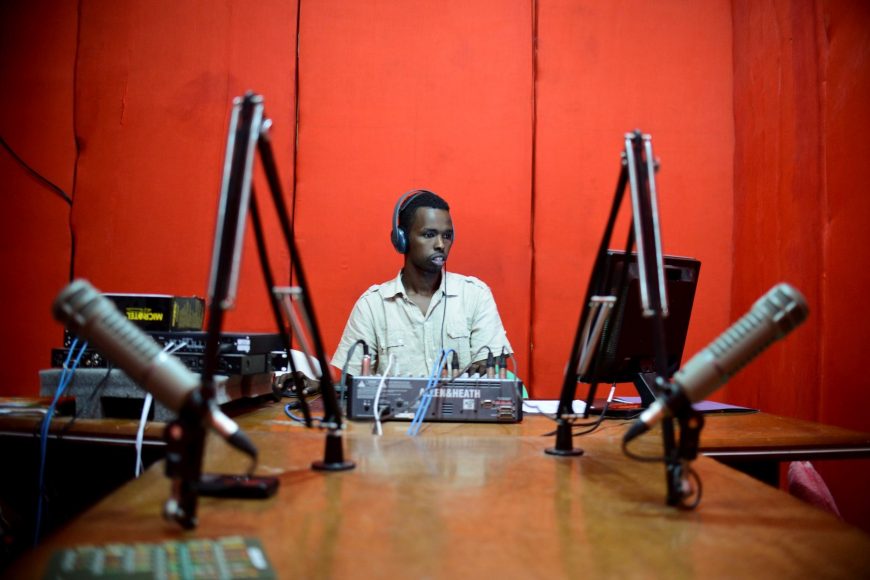People at the frontline of the world’s most pressing humanitarian crises are rarely asked their opinion on their own governments’ or international aid actors’ response. When they are, more often than not, they are subjected to extractive surveying methods that are abstracted and of little relevance to how citizens themselves perceive their experiences and priorities.
In August 2019, Africa’s Voices Foundation (AVF) conducted a two-week nationwide radio consultation to explore humanitarian priorities suggested by Somali citizens, in order to bring citizen voices into the design of the Humanitarian Needs Overview. This innovative AAP (Accountability to Affected Populations) intervention ran in parallel with the Joint Multicluster Needs Assessment (JMCNA) conducted by GroundTruth Solutions and REACH.
An innovative AAP intervention
A survey conducted in 2016 reported that 96% of people do not feel consulted in the aid that they receive at more local level, 41% of Somalis reported that they don’t have access to decision making processes in their settlement. Somalia has weak accountability system as result of lack of effective institutions and protracted conflict. Recent study showed that only 14% of Somalis feel they have a platform to voice their political concerns. The voice of affected populations is lacking from the humanitarian programming cycle and key decision-making tools and junctures; in particular the processes for developing (HNO) and (HRP).
The best way to overcome this situation is by first gathering information from the community on where the actual problems lie
The Common Social Accountability Platform: consulting citizens through interactive radio
CSAP is based on AVF’s interactive radio methodology – radio debate shows, shaped by audience feedback sent in by SMS – and is designed to be a large-scale, independent and system-level platform for engagement with affected communities that also provides credible insight on their perspectives, needs and experiences. CSAP enables citizen views to impact and shape humanitarian decision-making to meet citizens’ needs and priorities better. This way, it builds citizens trust in and accountability of decision-makers. The platform functions cross-sectorally, in line with new ways of working, and collaboratively – seeking to impact an ecosystem of decision-makers.
Unlike conventional survey techniques, consultations over interactive radio result in insights that are not only rich and plural – reaching people that are often excluded from traditional surveying – but also authentic and often surprising – they carry a nuance that would be unlikely to have emerged otherwise.

Interactive radio (i.e. radio talk-shows driven by citizen input via SMS) leverages the reach and vibrance of Somalia’s media and telecommunications landscape. It has proven to be a highly relevant medium for large-scale, inclusive and cost-efficient consultative conversations between Somalis and humanitarian actors.
Key findings
The 2019 intervention was designed to allow for direct comparisons of community priorities between the 2018 and 2019 consultations. There has been a significant shift in citizen priorities between 2018 and 2019, with greater emphasis placed on broad solutions such as community organisation, improved government capacity and the need for peace and security, over the provision of humanitarian services such as healthcare and education.
Community-led action was the most commonly suggested solution to the humanitarian situation in Somalia, which is indicative of aspirations of autonomy and empowerment amongst citizens. Greater access to information, including both awareness creation amongst citizens, and improved information collection amongst aid actors, emerged as a key theme, highlighting the need for greater two-way communication between aid agencies and citizens in order to improve accountability and transparency. Heavy emphasis on job creation highlights unemployment as a key issue. Finally, conceptions of self-reliance often centred around investments in agro-pastoral activities with some citizens underlining the link between aid dependency and the decline in agro-pastoral livelihoods.
I believe if we have a united government that works in a just manner for the people, people's needs will reduce greatly because if we get peace, security and stability, everything will be fine.